by Sr. Sheila Campbell MMM Ireland 21.04.2024
 Last September I found myself in a large garden waiting for a visitor to the house. It was a warm, sunny day, always welcome at that time of year. I sat on a garden bench and had the time just to feel the heat of the sun, hear the breeze as it swayed the small branches of the nearby tree and to notice a bunch of daisies at my feet.
Last September I found myself in a large garden waiting for a visitor to the house. It was a warm, sunny day, always welcome at that time of year. I sat on a garden bench and had the time just to feel the heat of the sun, hear the breeze as it swayed the small branches of the nearby tree and to notice a bunch of daisies at my feet.
We don’t notice daisies much. We walk across the lawn and step on them. At best we ignore them and at worst we treat them as a pest that need to be destroyed. I remember once a visiting Sister from Nigeria was horrified that we were mowing the lawn and cutting down all the lovely flowers! I laughed at the time, but she was right. Each flower is perfect in its simplicity and grace. It lifts it face to the sun each morning, stretches out its petals, welcomes insects and simply says “Here I am!”
In my life there are many people that I treat like daisies. I am ashamed to say this but it is true. I must acknowledge it. I have nothing against them, particularly, but our lives don’t intersect much, or if they do, I don’t notice them much. Why? Mainly because I am caught up in my own plans and concerns. I don’t stop and give the time to see people as they really are. Flawed and imperfect human beings like myself, yes, but also each one is unique and each one shows his/her own beauty in the world. My ignoring of people is the root of so much prejudice and racism that flourishes in our society. If I don’t notice people, I can ignore them or tread upon them like I do the daisies.
So today I make a promise to myself. Respect the ordinary. See the ordinary for what it is – extraordinary in some way or in some other place and time. The ordinary fire fighter becomes a hero at times of crisis. Delivery drivers, cooks and cleaners become “essential workers” as we learnt during the pandemic. I don’t ever want to forget that “ordinary people” are very special people. After all, I too am a daisy in someone else’s life!
 The other evening I was watching a programme with wild animals when suddenly a snake appeared, then a person with a snake bite was shown on the screen and from then on managing this emergency took over the story. There was a rush to get immediate treatment, lots of drama and I was quickly brought back to Tanzania in East Africa, to the White Fathers, or Missionaries of Africa as we now call them, and to the famous black stone that we all carried and used for snakebites.
The other evening I was watching a programme with wild animals when suddenly a snake appeared, then a person with a snake bite was shown on the screen and from then on managing this emergency took over the story. There was a rush to get immediate treatment, lots of drama and I was quickly brought back to Tanzania in East Africa, to the White Fathers, or Missionaries of Africa as we now call them, and to the famous black stone that we all carried and used for snakebites.by Sr. Siobhan O’Keefe SHJM Ireland 17.04.2924
 LIfe is fragile….and we sometimes feel its fragility at the most unexpected moments.
LIfe is fragile….and we sometimes feel its fragility at the most unexpected moments.
It may be something as ordinary as an incorrect name on a computer-generated document that causes distress and unexpected extortionate penalty charges.
Technology glitches occur leaving people vulnerable and unsure of where they stand when dealing with large corporate organisations. An increasing number of people are referred to websites, chat boxes and automated telephone lines. Queues of hundreds of people may be waiting, and a robotic voice says, ‘you are number 106 in the queue.’ There is no human person to listen and relieve distress and to provide a positive and helpful solution. The person may be left feeling invisible, frustrated and angry before the might of the computer. On the occasion when a member of staff is available at a ‘Help Desk’ negotiation can be extremely difficult when staff are left to deal with distressed customers and seemingly inflexible company policies which appear to serve the best interests of the company, not the customer.
This form of ‘service’ is contrary to the Gospel of compassionate care expressed by Jesus in all of his ministry. He reached out in sensitivity and love to listen, respond and restore to fulness of life all who called to him. For him there was no on-line form filling, chat boxes or social media. His response was, “What do you want me to do for you?” so that the felt expressed needs of the person could be met and their spirit restored to fulness of life.
As his followers we are asked to be respectful in our dealings with each other, to be gracious and compassionate and to challenges all forms of injustice. He who was vulnerable will show us how to live in this way so that the crushed reed is never broken. (Matthew 12:20)
by Sr. Helen McKenna MMM Ireland/Tanzania 15.04.2024
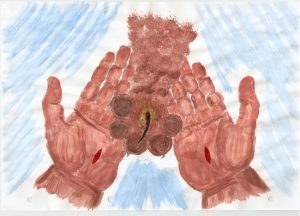 I have a friendly dog at home. He could always be trusted even to play with the children. One day, while I am playing with him, I grasp his paw. He sinks his teeth into my wrist. I am horrified.]
I have a friendly dog at home. He could always be trusted even to play with the children. One day, while I am playing with him, I grasp his paw. He sinks his teeth into my wrist. I am horrified.]
I think to myself, this dog can no longer be trusted if he bites. Take him to the Vet and have him put down.
Before doing so, I decide to look at his paw and there I find my dog has a thorn in his paw. It is infected and sore. Now that I know why he bit me, I say, “Poor dog, he’s hurting. Bring him to the Vet and have him healed”.
What changed? I am still bleeding from my wrist, still in pain.
What changed was my attitude. I now feel sorry for the dog and have compassion on him. I understand that he bit me in order to get me to release my grip on his sore paw.
I only dis-covered the reason why he bit me when I ‘had another look’ (to look again or to respect) when I had respect for the dog.
When someone hurts me, I remember the ‘Dog with the Sore Paw’ and try to imagine what hurt in them is making them ‘bite’ me. Then I can have compassion on them. It doesn’t take away my pain but it makes it easier to bear.
When I reflect on my own sinfulness, I realise that I hurt other people because I have a ‘sore paw’. Now, I can forgive myself and have compassion on my sore paw. I bring my ‘sore paw’ to The Healer, Jesus. He holds my sore paw in His hands and forgives and heals me.
Jesus, heal all those whom I have hurt because of my sore paw.
by Sr. Maureen O’Sullivan MMM (1920 – 2017) Ireland 13.04.2024
Editors Note: This story, first published in 1975, comes from Sr. Maureen’s time in Ethiopia.
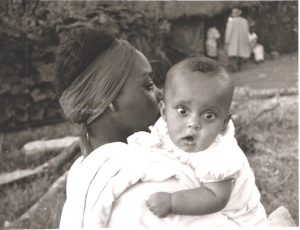 Taitu, one of our patients, was admitted with active, untreated, lepromatous leprosy, in an extremely ill condition. The health worker who informed me of her arrival said she had come with her brother from Tareta in Ticho, and she had also brought her little daughter with her.
Taitu, one of our patients, was admitted with active, untreated, lepromatous leprosy, in an extremely ill condition. The health worker who informed me of her arrival said she had come with her brother from Tareta in Ticho, and she had also brought her little daughter with her.
As I headed in the direction of the out-patients department an avalanche of thoughts swept through my mind. “Tareta, that’s one of Gobessa’s outstation treatment centres. How on earth did she get here? What way did she come? How did she find the way? How long did it take?” I knew that forest, mountain, and gorge lay between Gobessa and Gambo.
How did she come? Presumably on horseback if she was in the condition the health worker described. Horseback and on foot were the only means of travel in these parts. Just as I approached the dispensary, the little group came into view. The sight confirmed the picture my mind had conjured up. Taitu just sat there. Her face was covered with active looking lepromatous nodules, her lips were swollen, and the bridge of her nose somewhat collapsed. She was tired and weak, with hardly any energy to formulate a word. Her right arm encircled her little bundle of a daughter on her knee. She was marasmic and weak, with sunken, dull eyes. Gadisse was about three years old, but her legs were unable to support her little body.
The very evident mutual bond between mother and child was perhaps the only explanation I could see for the child’s survival through the past five-day ordeal of travelling. As I watched the little group during these first moments of negotiation, another scene flashed across my mind’s eye which ha many resemblances to this one. It was of another poor couple, carrying a Child, who were obliged by circumstances to undertake a long and difficult journey into unfamiliar territory. Life in a rural area in developing countries has much akin to what life must have been like in the early Christian era.
After a few preliminaries, Taitu was admitted, and treatment began. Gadisse was also admitted and put in a cot within view of her mother’s bed. Treatment for malnutrition was begun for her, and she was also given preventative treatment against leprosy. Taitu’s brother, after a day’s rest, undertook the long return journey home.
Much water has flown under the bridge since the day Taitu arrived here about two and a half years ago. \\\her case has nor been an easy one and she has had some relapses. Nevertheless, she has never reverted completely to the condition of her arrival. Gadisse now romps happily around, the attraction of all and sundry. Wherever you find her, you know her mother is not too far away. Taitu’s nodules have gone but have left their marks of small localized wrinkled areas in her skin.
Ever a lady to her fingertips, and with an innate sense of refinement, she has not harboured the least trace of bitterness or resentment. The disease has left disfiguring marks on her body, but did nothing to her spirit.
by Sr. Margaret Anne Meyer MMM USA 11.04.2024
 Finally, the time had arrived for a little breathing space. Well, this was what we thought when we heard that we would be studying the “small parts” connected with our final medical exam. Eyes, Ears, Nose, Throat, and Psychiatry would be the main subjects of our lectures. We would not have a written examination but would have a clinical and oral examination. The best part of this year is that we went to outside hospitals who specialized in these fields.
Finally, the time had arrived for a little breathing space. Well, this was what we thought when we heard that we would be studying the “small parts” connected with our final medical exam. Eyes, Ears, Nose, Throat, and Psychiatry would be the main subjects of our lectures. We would not have a written examination but would have a clinical and oral examination. The best part of this year is that we went to outside hospitals who specialized in these fields.
I will never forget our first day at Grangegorman Hospital. We were all waiting to see a psychiatric patient and as soon as he entered the room, he asked us “What is wrong with all of you? Why are you not talking to each other? Is your hypothalamus not connected to your cerebellum?” I could feel the cold sweat dripping down my back as he continued to tell us he was Jesus Christ who had just landed in Howth. I was beginning to feel like I was the psychiatric person, and this happened repeatedly in their presence throughout my medical practice.
We also had lectures in Pediatrics and Obstetrics and Gynecology because we would have these exams the following November. Traveling to Crumlin Childrens’ Hospital took over an hour on the bicycle. Often Seamus Healy who was a member of our class and had a sister Roisin, who had entered the Medical Missionaries of Mary, very kindly gave us a lift to these far places. We would cycle to Earlsfort Terrace where he would meet us in his car. We all enjoyed those rides. Another treat at Crumlin Hospital is that we could buy a cup of coffee and have delicious Jacob’s macaroon biscuit for 2/6d.
Around this time our tutorials in Medicine and Surgery continued in the late afternoons and some evenings we stayed for a few hours in the Casualty Department. I found it all extremely exciting and interesting but sometimes I felt faint at the sights I was seeing large needles injected for diagnostic tests in someone’s neck or back. I am so glad that I never had to use those tests and today’s tests are done in a much simpler manner.
Another subject we had was Forensic Medicine. The lecturer gave us dramatic descriptions of what one would suspect to witness foul play. One sees all these in mystery movies but the way he had the lightning striking one could almost feel that one was actually at the crime scene. We had a textbook but the week before the exam I realized that I had not opened it very much. The saving factor was that our Professor had drafted an article explaining the difference between salt water and freshwater drowning. It was written in the Irish Medical Journal. We all read the article and, lo and behold, wasn’t it on our exam paper. Somehow, we got through.
Yes, Spring seemed to come fast that year 1963, and I would like to tell you about some of the exams. The young fellow that I was to present told me a story of how he did marvelous feats on the Dublin buses. He would jump off a bridge to catch a ride on one. Sometimes he would get a fit. I remember retelling his entire story and the psychiatrist said “Did you believe him?” I then realized he might be telling me a wild tale. I decided to tell the truth. I said, “Yes I did believe him.” Then the doctor said, “what is the diagnosis?” I said, “Temporal Lobe Psychomotor Epilepsy.” That was the end of my exam. I did not fail it, but I still do not know if the lad told the truth or not.
I did well on the Ear, Nose, and Throat exam. I was asked about “Otis media ” and the treatment. It was the only exam I got a Second Class Honors for which I thanked God.
Thus, the small part exams were finished and beside the three of us rejoicing we also rejoiced in the success of the four ahead of us Anne Merriman, Rose Ann Houlihan, Catherine Fitzpatrick, Annie Chitalilpilly, to complete their final Med successfully, knowing that next year it would be our turn to complete the ordeal but that is another story.
by Sr. Joannes Meehan MMM (1917 – 1979) Ireland 09.04.2024
First published by MMM in 1977
 Every vocation is unique. Each can speak of the wonder and the marvels of his or her call and ultimate response. Perhaps the summons came through an acquaintance, a chance meeting, an event, a grief, a great joy, the loss of a beloved one. God works God’s plan in this way.
Every vocation is unique. Each can speak of the wonder and the marvels of his or her call and ultimate response. Perhaps the summons came through an acquaintance, a chance meeting, an event, a grief, a great joy, the loss of a beloved one. God works God’s plan in this way.
I can speak of my own experience. God’s plan for me was working in the Civil Service, getting married, being widowed and then total commitment to missionary life as a Medical Missionary of Mary. Following profession and a period of preparation for the apostolate, I was sent out to bring the Good News to Turkana, Kenya.
Missionaries were not allowed into this part of Kenya until 1961 when, following three years of drought, the people were faced with starvation and death. Almost all the livestock had died. Turkana comprises 25,00 square miles of desert and semi-desert land in Northwest Kenya. The people are a nomadic tribe who roam the vast wilderness in search of fodder and water for their herds of sheep, goats, and camels. They live, eat, and sleep in the open. Their diet is milk mixed with blood from the camels which they bleed occasionally. In December 1961 MMM went out to to set up famine camps. Today (1977), these camps have almost disappeared, but there remains the duty to help these people to become self-supporting and combat the two main scourges: malnutrition and lack of water.
Under the direction of Monsignor Mahon SPS, Prefect Apostolic of Lodwar, I started a Montesorri Nursery School at Turkwell. This gives me a special relationship with the parents and adult population, so that I can help them too. Above all I must strive to convey to them God’s loving care for them in their needs.
I cannot but marvel at the way God has shaped my life. Even though I had my share of crosses. May it be an encouragement to others who feel thwarted in their hopes and help them open their hearts to God’s plan for them.
by Jo Doyle Ireland 07.04.2024
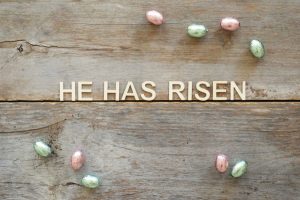 I walked with Jesus.
I walked with Jesus.
A follower, a friend.
I knew he was different and that he was going to take us to victory over the Roman soldiers.
So I walked with him.
I loved that moment in time because I loved him and felt that he loved me.
That brought me joy.
Looking back I realized that I had no idea what he was talking about.
The Kingdom!
His father and him were one?
Ludicrous stuff.
But none of that mattered to me, his company was infectious. I felt happy and I had spent much of my life joyless.
There seemed to be a purpose when I was with him.
He enjoyed life, enjoyed his family, friends, and I would describe him as a man who included everyone.
I never thought that by him doing that, that everyone would turn on him.
It became dangerous because he kept including people and then he started healing them!
It was amazing, awesome, but problematic.
Rules, so many rules were broken, and he was being noticed, telling men to pick up their mats on the Sabbath.
Not allowed!
Healing the blind! Cleansing demons!
Who did he think he was? And then of course he told them.
Blasphemy!
I became frightened, cautious, but I never believed that I could turn my back on him so easily.
We all did.
The mob went mad and so did we.
I hid in the alleyways that day. Cowardly I was.
Oh my shame at watching him pass with the blood and mess, I hid, I was frightened of death, and I left my friend.
For days after he died, none of us could look at each other, there was no word for the shame we felt.
A few of us went back to fishing, there was nothing else to do.
Then Peter saw him.
I thought I must have fallen asleep and was dreaming, but it was him.
My head was splitting, lost to confusion and disbelief. I stood on the banks of the lake until he turned and looked back, and I cried. I was ashamed that he held no hostility to my cowardice.
That first evening was so painful. He held no malice.
But later in the dead of night I heard him sob on Peters shoulder saying,
‘How could he? How could Judas believe that I didn’t love him?’
That next morning I arose. I knew what I was to do now.
So, on that day my journey began.
Jo Wardhaugh Doyle is farming in Kildare with her husband Matt. She has worked in Uganda, Ethiopia and Kenya, but more recently has worked with Sr Rita Kelly MMM doing the REAP programme in the Irish Missionary Union (IMU).
by Nadia Ramoutar MMM Communications Coordinator Ireland 05.04.2024
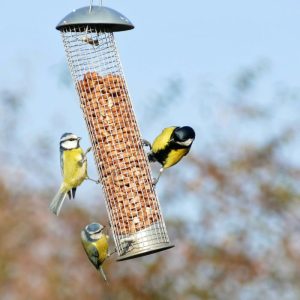 I was talking to a friend who lives in New Zealand. He told me how things are cooling off after a very hot summer and the leaves are turning brown, rust and gold. It was interesting to listen to him as the opposite is true here in the Ireland at the moment. Yesterday was the first day that Spring actually felt like it was with us even though it is April. How strange that our reality in this hemi-sphere is opposite to what he is experiencing there literally on the other side of the world. It is ethno-centric of me to think it is Spring everywhere when it is not.
I was talking to a friend who lives in New Zealand. He told me how things are cooling off after a very hot summer and the leaves are turning brown, rust and gold. It was interesting to listen to him as the opposite is true here in the Ireland at the moment. Yesterday was the first day that Spring actually felt like it was with us even though it is April. How strange that our reality in this hemi-sphere is opposite to what he is experiencing there literally on the other side of the world. It is ethno-centric of me to think it is Spring everywhere when it is not.
Another friend of mine is traveling at the moment and sending me messages from India. He is 4 hours and 30 minutes ahead of me. I could not believe that India had a time difference that included 30 minutes and not just hours! Again, my sense of time and space comes into question. I was very thrown off my the half hour increment a decision that was made in 1947 after it became an independent country.
I share this with you because there are a lot of things we treasure like time and weather which are in fact almost an illusion – nothing is actually as it seems. Without meaning to we are often attached to what we consider to be reality when in fact it is not in any way permanent or fixed. Is it possible that we attach ourselves to facts, ideas, thoughts or attitudes that actually hold us back or limit?
One of my hobbies that helps me to cope with stress and gives me the pleasant experience of being outdoors is gardening. I moved into a house that is terraced so my back garden has walls on all sides. I look out to the garden while I work from my desk and I wanted to invite more wild birds to be part of my plan. I got a bird feeder but I didn’t have many plants in the garden yet. The birds didn’t come. I could hear them around but none visited. I realised if I wanted them to come, I needed to create a “habitat” so the birds could flit onto the feeder and feel safe. As soon as I did this, they came.
Birds are wise enough to know not to take food if they cannot protect themselves and based on the number of cats roaming the neighbourhood, I think it is wise. By adding some plants and shrubs and creating a habitat, I changed the nature of my back garden. I could have given up, but I didn’t. I ask you what parts of your “reality” do you need to question? How could you challenge yourself to have faith to see things in a new way? Perhaps to create safe places for other living beings? I believe that human kind can do better.
by. Sr. Anna Finnegan MMM Ireland 03.04.2024
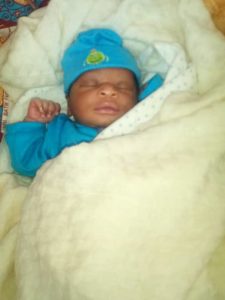 In November 1980, I was at home ready to return to Nigeria after my Final Profession. Our Congregational Leader, at the time, Sr. Jude Walsh, rang me and asked if I would do something a bit unusual. Would I bring a little ten-month old baby back to Nigeria?
In November 1980, I was at home ready to return to Nigeria after my Final Profession. Our Congregational Leader, at the time, Sr. Jude Walsh, rang me and asked if I would do something a bit unusual. Would I bring a little ten-month old baby back to Nigeria?
The father was Nigerian, and the mother was Irish. The mother was very young, and she did not feel able to look after the baby herself. The father wanted to have him back in Nigeria. She was very agreeable to this and together they worked with Social Services to make it possible.
I said I would be happy to bring the baby back with me. I was well used to caring for children being one of a large family, and with my previous experience of working in the Childrens’ Hospital. Before I left, I checked things out with the social worker and was satisfied to know that the official documentation was in order.
The morning came in mid-November for departure. Two of our MMM Sisters left me to Dublin airport where I was to meet the mother and baby. There was no sign of them when I arrived, and my flight was called three times. Then in the distance I could see a young fair-haired girl running across the airport with the baby in her arms. She gave me the baby and a bag containing the baby’s items. Before we left, she wanted photographs taken with the baby and asked me to write to her when the child had reached his father. At the Aer Lingus departure desk, I passed the baby Ahmed’s ticket and my own to the lady. She looked up at me in surprise, as I was dressed in my full grey habit. She smiled and said, “Are you taking that baby all the way to Nigeria?”
When we reached Amsterdam, we had a few hours to wait until the next flight to Lagos. Ahmed was quite happy and content. Then came the longer flight to Lagos. I had a very comfortable seat at the front of the plane with extra room for baby Ahmed. He was a happy child and danced up and down on my knee until he fell asleep. The air hostess was very helpful too when I needed hot water, etc, for the baby’s food.
When we arrived in Lagos, one of our MMM Sisters was there to meet us. We waited around for a long time – no sign of the father. It wasn’t any surprise because communication between Ireland and Nigeria was very slow at that time, an there were no mobile phones!
We took the late afternoon flight to Port Harcourt. I had a ticket only as far as Lagos for the baby, but I boarded the plane that afternoon with the baby and no one raised an eyebrow! While we walked across the tarmac, sisters from another Congregation, who were waiting to pick up their passenger, were eyeing us and were surprised to see myself and a baby arriving in!
In Port Harcourt one of our MMM Sisters was waiting there with the driver to bring us to Urua Akpan. It was only in Urua Akpan that the baby began to fret. He was not used to all these young girls wanting to pick him up and play with him.
Now, how to find the father? On Friday, the next morning, we travelled to the town where the father worked and went to the factory. Unfortunately, he had a day off work that day and no one could locate him. After leaving messages that he should be at home the following day, we went to our nearest MMM house for the night. Next morning, we were successful. The father was waiting outside his house, happy, excited and nervous to see his little son again. Ahmed cried when he left my arms, and it was hard to say goodbye. The father assured us that his own mother was going to help him take care of the child.
When I got back to Urua Akpan, I wrote to the mother as promised, and she wrote back thanking me. She had also received a letter from the father.
As I write this in April 2024, Ahmed, the baby, is now 44 years old. I often think of him and pray that he is happy and that he is doing good for the people of Nigeria.
